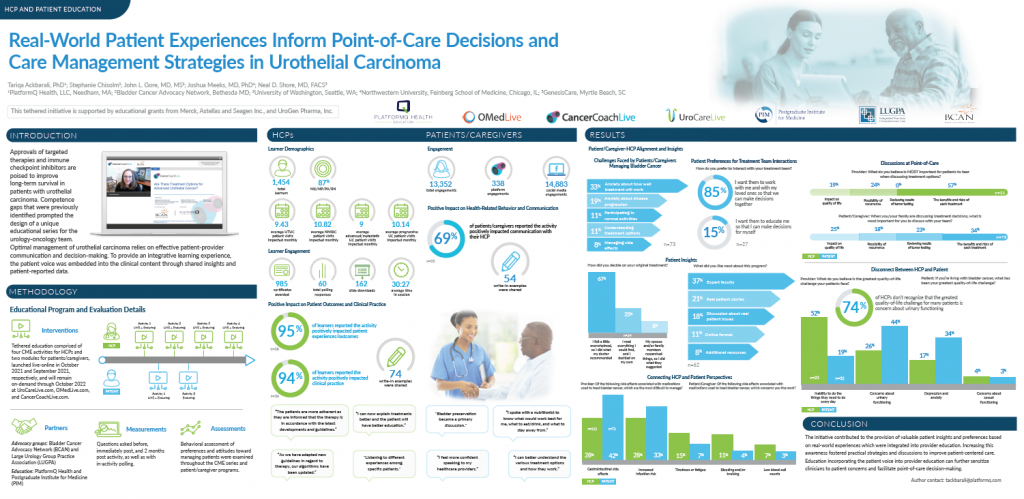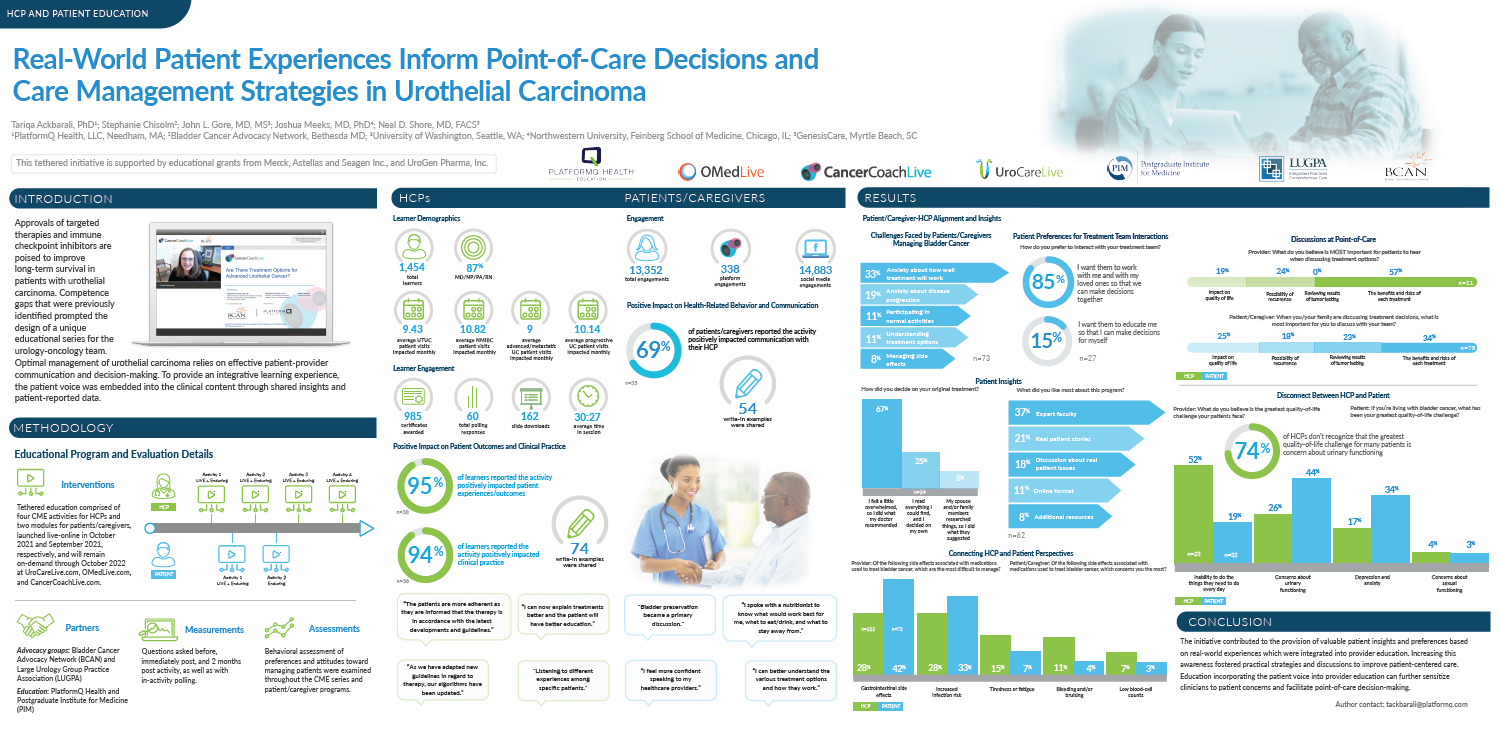Targeted therapies such as immune checkpoint inhibitors are poised to improve long-term survival of patients with urothelial carcinoma. The emergence of these new therapies, however, presents knowledge gaps for clinicians, prompting PlatformQ Health and the Bladder Cancer Advocacy Network (BCAN) to create an unique education series for urology and oncology professionals. To optimize patient/provider communication in these treatment plans, the learning experience included patient voice as a means to share insights with clinicians.
The tethered education model encompassed four CME activities for healthcare providers and two for patients and caregivers, which were launched live in the fall of 2021 and remained available on demand through learning channels, including UroCareLive.com, OmedLive,com, and CancerCoachLive.com. Following the sessions, PlatformQ Health and BCAN developed a poster examining the program outcomes for the 2022 ASCO Quality Care Symposium. A forum for the latest methods for measuring patient and caregiver experience, provider efficiency, clinical outcomes, and quality and safety in cancer care, the ASCO Quality Care Symposium is funded through Conquer CancerⓇ, the ASCO Foundation, and other generous donors.
Click here to download the full poster.
The educational series had a considerable impact with 1,454 total learners, including 87% of whom were medical professionals.
The average time in session exceeded 30 minutes, with 95% of learners reporting that the activity positively impacted patient experiences and outcomes and 94% reporting that the activity positively impacted clinical practice. Learners found the content compelling, with 74 percent sharing write in comments, such as:
“I can now explain treatments better and the patients have better education.”
“I feel more confident speaking to my healthcare providers.”
“I’ve adapted new guidelines in regard to therapy.”
The programs also served to identify disconnects between providers and patients, revealing
that 74% of providers did not recognize that the greatest quality of life challenge for many patients is the concern about urinary function. This knowledge can serve to improve future educational programs. The initiative brought invaluable patient insights based on real-world experiences. Increasing clinician awareness fostered practical strategies and discussions to enhance patient-centered care. By including patient voice in educational programs, sensitized clinicians to patient concerns, helping aid in point-of-care decision making.


